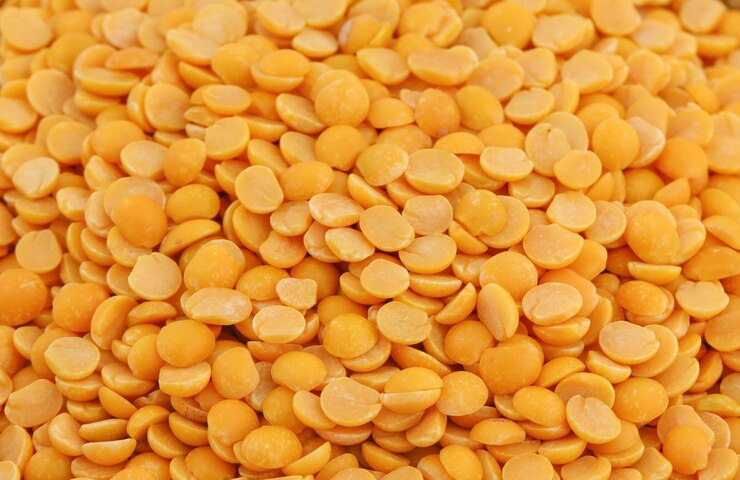
Arhar dal, also known as pigeon pea, is a staple in many cuisines worldwide, valued for its taste, nutritional content, and versatility. However, like many foods, overconsumption of arhar dal can lead to health hazards that are often overlooked. In this article, we'll delve into the potential risks associated with excessive intake of arhar dal and explore how moderation is key to reaping its benefits while avoiding adverse effects.
Table of Content:-
The Nutritional Profile of Arhar Dal
Arhar dal is rich in essential nutrients, including protein, dietary fibre, vitamins, and minerals. It serves as an excellent source of plant-based protein, making it a valuable component of vegetarian and vegan diets. Additionally, its high fibre content aids digestion, promotes satiety, and supports overall gut health. Moreover, arhar dal contains significant amounts of folate, iron, potassium, and magnesium, essential for various bodily functions.
The Dangers of Overeating Arhar Dal
While arhar dal boasts an impressive nutritional profile, excessive consumption can lead to several health hazards:
1. Digestive Disturbances
Arhar dal contains certain compounds, such as oligosaccharides and lectins, which can be difficult to digest for some individuals. Overeating arhar dal may exacerbate digestive issues such as bloating, gas, and indigestion, particularly in those with sensitive stomachs or underlying digestive disorders.

2. Risk of Gout
Arhar dal is moderately high in purines, naturally occurring substances that can increase uric acid levels in the body. Elevated uric acid levels raise the risk of gout, a type of arthritis characterised by sudden and severe joint pain, swelling, and inflammation. Individuals prone to gout or those with a history of kidney problems should consume arhar dal in moderation to mitigate this risk.
Also Read: Expert Shares the Power of Tulsi Leaves to Control Bad Cholesterol LDL Levels
3. Impact on Blood Sugar
Despite its benefits for blood sugar regulation, excessive intake of arhar dal can lead to spikes in blood glucose levels, especially when consumed in large quantities or refined forms. This can be problematic for individuals with diabetes or insulin resistance, potentially compromising glycemic control and increasing the risk of hyperglycemia.

4. Potential Allergies
While rare, some individuals may develop allergies or sensitivities to components present in arhar dal, such as proteins or certain allergens. Overconsumption can heighten the risk of allergic reactions, manifesting as itching, hives, swelling, or respiratory issues in susceptible individuals.
5. Mineral Imbalances
Arhar dal contains moderate levels of certain minerals, notably potassium and magnesium. Excessive intake of these minerals, particularly through supplementation or concentrated sources like arhar dal, can disrupt electrolyte balance and lead to adverse effects such as muscle weakness, irregular heartbeat, or kidney dysfunction.
Also Read: Combatting Measles: Expert Explains Symptoms and Effective Prevention Strategies
6. Maintaining a Balanced Approach
Despite the potential health hazards associated with overeating arhar dal, it remains a nutritious and valuable component of a balanced diet when consumed in moderation. To reap its benefits while minimising risks:
- Practice portion control and moderation in arhar dal consumption, adhering to recommended serving sizes.
- Diversify your diet to include a variety of protein sources, grains, legumes, fruits, and vegetables to ensure nutritional adequacy.
- If you have specific dietary restrictions, allergies, or health concerns, consult a healthcare professional or registered dietitian for personalised guidance and recommendations.
- Experiment with different cooking methods and recipes to enhance the palatability and nutritional variety of arhar dal dishes.
Bottomline
Arhar dal offers a plethora of health benefits when incorporated sensibly into a well-balanced diet. However, overindulgence can lead to adverse effects ranging from digestive discomfort to metabolic disturbances. By understanding the potential risks associated with excessive consumption and adopting a mindful approach to dietary choices, individuals can harness the nutritional goodness of arhar dal while safeguarding their health and well-being.
Also watch this video
How we keep this article up to date:
We work with experts and keep a close eye on the latest in health and wellness. Whenever there is a new research or helpful information, we update our articles with accurate and useful advice.
Current Version